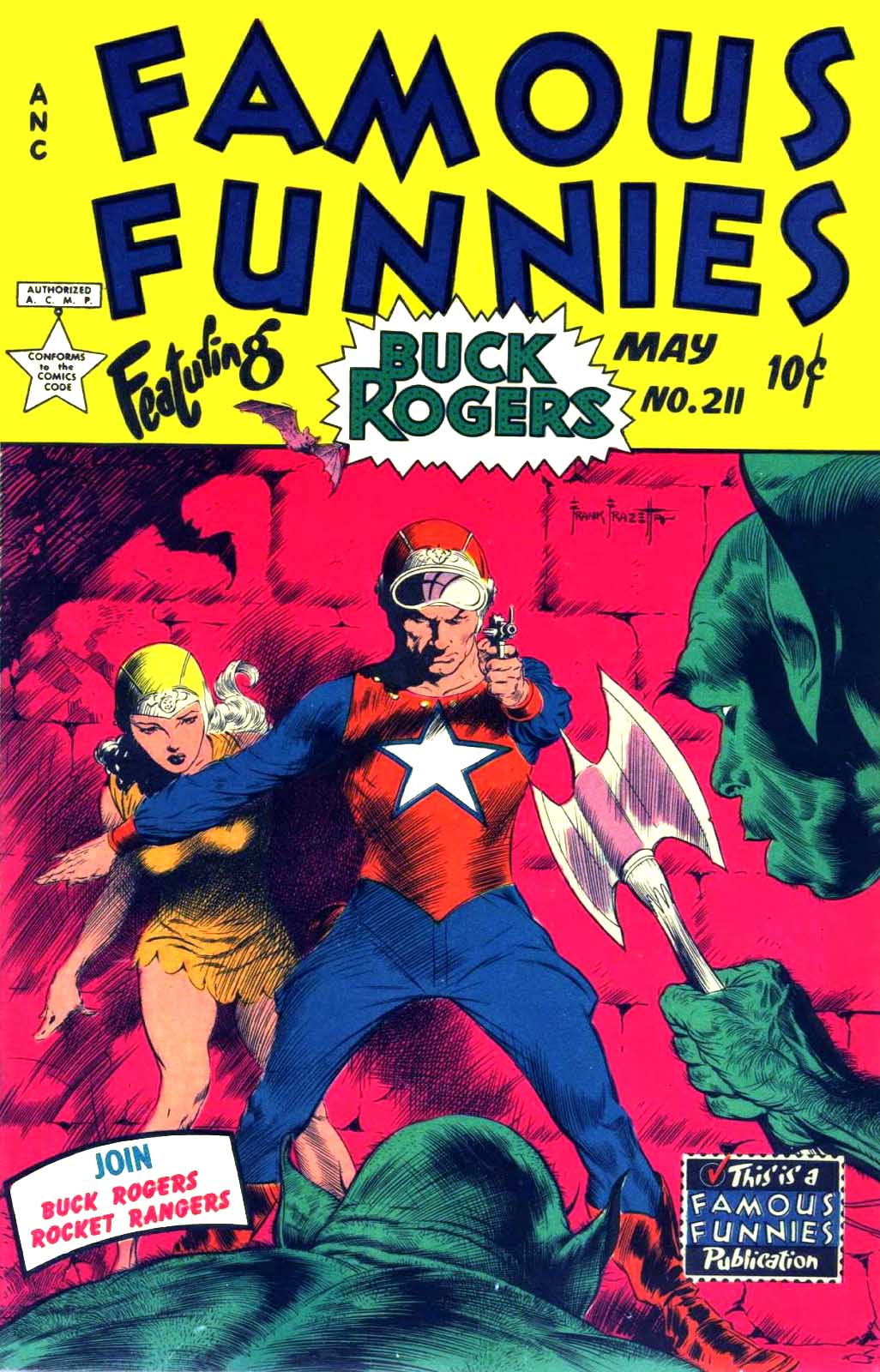|
Matrix Cubed
''Buck Rogers: Matrix Cubed'' is a role-playing video game for MS-DOS developed and published by Strategic Simulations 1992. It uses the Gold Box engine. The game takes place in the Buck Rogers XXVC campaign setting. ''Matrix Cubed'' is a sequel to '' Countdown to Doomsday'' which came out in 1990. Plot The player's party is invited to attend the coronation of a new Sun King on Mercury. They also meet up with Dr Romney, who explains that he has discovered a way to create an incredible source of free energy, one that has the potential to rebuild Earth and challenge the power of RAM (Russo-American Mercantile). Buck asks the team to find Dr Coldor at Copernicus station on Luna (the Moon). The station is filled with corrupt officials, and a significant weapons manufacturer is also involved. RAM slavers are also operating in the area, giving the player another opportunity to test their skills. The team discovers that their ship has become sabotaged, filling it with radiation, and are ... [...More Info...] [...Related Items...] OR: [Wikipedia] [Google] [Baidu] |
Strategic Simulations
Strategic Simulations, Inc. (SSI) was a video game developer and video game publisher, publisher with over 100 titles to its credit from its founding in 1979 to its dissolution in 1994. The company was especially noted for its numerous wargames, its official computer game adaptations of ''Dungeons & Dragons'', and for the groundbreaking ''Panzer General'' series. History The company was founded by Joel Billings, a wargame enthusiast, who in the summer of 1979 saw the possibility of using the new home computers such as the TRS-80 for wargames. While unsuccessfully approaching Avalon Hill and Automated Simulations to publish wargames, he hired video game programmer, programmers John Lyons (game programmer), John Lyons, who wrote ''Computer Bismarck''—later claimed to have been the first "serious wargame" published for a microcomputer"Titans of the Computer Gaming World"''Computer Gaming World'', March 1988 p.36.—and Ed Williger, who wrote ''Computer Ambush''. Both games were w ... [...More Info...] [...Related Items...] OR: [Wikipedia] [Google] [Baidu] |
Zero (video Game Magazine)
''Zero'' was a video game magazine in the UK, published monthly by Dennis Publishing Ltd. between November 1989 and October 1992. (Actual publication dates were in the preceding month, as usual for UK magazines.) It won the InDin Magazine of the Year award in both 1990 and 1991, and was also briefly the best-selling multi-format 16-bit computer magazine in the UK. History The pre-launch editor and publisher was Teresa Maughan (also publisher of Your Sinclair) and initial editor was Gareth Herincx, who left during the compilation of issue 3, at which point Tim Ponting took over. Reviewers for the launch issue were: Jonathan Davies, Sean Kelly, Duncan MacDonald, David McCandless, Marcus 'Binky' Berkmann, and Matt Bielby (all former writers for ''Your Sinclair''). Other journalists of note who worked at ''Zero'' included David 'Whistlin' Rick' Wilson, 'Lord' Paul Lakin, Amaya Lopez, Jackie Sutton, Rich Pelley and Jane Goldman. Issue 1 contained a coverdisk containing two free gam ... [...More Info...] [...Related Items...] OR: [Wikipedia] [Google] [Baidu] |
Video Games Scored By George Sanger
Video is an electronic medium for the recording, copying, playback, broadcasting, and display of moving visual media. Video was first developed for mechanical television systems, which were quickly replaced by cathode-ray tube (CRT) systems which, in turn, were replaced by flat panel displays of several types. Video systems vary in display resolution, aspect ratio, refresh rate, color capabilities and other qualities. Analog and digital variants exist and can be carried on a variety of media, including radio broadcast, magnetic tape, optical discs, computer files, and network streaming. History Analog video Video technology was first developed for mechanical television systems, which were quickly replaced by cathode-ray tube (CRT) television systems, but several new technologies for video display devices have since been invented. Video was originally exclusively a live technology. Charles Ginsburg led an Ampex research team developing one of the first pract ... [...More Info...] [...Related Items...] OR: [Wikipedia] [Google] [Baidu] |
Video Games Featuring Protagonists Of Selectable Gender
Video is an electronic medium for the recording, copying, playback, broadcasting, and display of moving visual media. Video was first developed for mechanical television systems, which were quickly replaced by cathode-ray tube (CRT) systems which, in turn, were replaced by flat panel displays of several types. Video systems vary in display resolution, aspect ratio, refresh rate, color capabilities and other qualities. Analog and digital variants exist and can be carried on a variety of media, including radio broadcast, magnetic tape, optical discs, Video file format, computer files, and Streaming media, network streaming. History Analog video Video technology was first developed for mechanical television systems, which were quickly replaced by cathode-ray tube (CRT) television systems, but several new technologies for video display devices have since been invented. Video was originally exclusively a Live television, live technology. Charles Ginsburg led an Ampex rese ... [...More Info...] [...Related Items...] OR: [Wikipedia] [Google] [Baidu] |
Video Games Developed In The United States
Video is an electronic medium for the recording, copying, playback, broadcasting, and display of moving visual media. Video was first developed for mechanical television systems, which were quickly replaced by cathode-ray tube (CRT) systems which, in turn, were replaced by flat panel displays of several types. Video systems vary in display resolution, aspect ratio, refresh rate, color capabilities and other qualities. Analog and digital variants exist and can be carried on a variety of media, including radio broadcast, magnetic tape, optical discs, computer files, and network streaming. History Analog video Video technology was first developed for mechanical television systems, which were quickly replaced by cathode-ray tube (CRT) television systems, but several new technologies for video display devices have since been invented. Video was originally exclusively a live technology. Charles Ginsburg led an Ampex research team developing one of the first pract ... [...More Info...] [...Related Items...] OR: [Wikipedia] [Google] [Baidu] |
Video Games Based On Tabletop Role-playing Games
Video is an electronic medium for the recording, copying, playback, broadcasting, and display of moving visual media. Video was first developed for mechanical television systems, which were quickly replaced by cathode-ray tube (CRT) systems which, in turn, were replaced by flat panel displays of several types. Video systems vary in display resolution, aspect ratio, refresh rate, color capabilities and other qualities. Analog and digital variants exist and can be carried on a variety of media, including radio broadcast, magnetic tape, optical discs, computer files, and network streaming. History Analog video Video technology was first developed for mechanical television systems, which were quickly replaced by cathode-ray tube (CRT) television systems, but several new technologies for video display devices have since been invented. Video was originally exclusively a live technology. Charles Ginsburg led an Ampex research team developing one of the first practica ... [...More Info...] [...Related Items...] OR: [Wikipedia] [Google] [Baidu] |
Tactical Role-playing Video Games
Tactic(s) or Tactical may refer to: * Tactic (method), a conceptual action implemented as one or more specific tasks ** Military tactics, the disposition and maneuver of units on a particular sea or battlefield ** Chess tactics ** Political tactics * TACTIC (military program), a U.S. military research program conducted by DARPA Computer science * TACTIC (web framework), a smart process application by Southpaw Technology Geography * Tactic, Guatemala, a municipality in the Alta Verapaz department Entertainment * Tactics, a dart game similar to cricket * "Tactics", a 1995 song by The Yellow Monkey * ''Tactics'' (album), a 1996 album by John Abercrombie * Tactics (band), an Australian band * ''Tactics'' (game), generally credited as the first board wargame * ''Tactics'' (manga), a Japanese manga series * ''Tactic'' (video game), a puzzle video game * Tactics (video games studio) is a Japanese software publishing company specializing in the publishing and distribution of ... [...More Info...] [...Related Items...] OR: [Wikipedia] [Google] [Baidu] |
Strategic Simulations Games
Strategy (from Greek στρατηγία ''stratēgia'', "art of troop leader; office of general, command, generalship") is a general plan to achieve one or more long-term or overall goals under conditions of uncertainty. In the sense of the "art of the general", which included several subsets of skills including military tactics, siegecraft, logistics etc., the term came into use in the 6th century C.E. in Eastern Roman terminology, and was translated into Western vernacular languages only in the 18th century. From then until the 20th century, the word "strategy" came to denote "a comprehensive way to try to pursue political ends, including the threat or actual use of force, in a dialectic of wills" in a military conflict, in which both adversaries interact. Strategy is important because the resources available to achieve goals are usually limited. Strategy generally involves setting goals and priorities, determining actions to achieve the goals, and mobilizing resources to execu ... [...More Info...] [...Related Items...] OR: [Wikipedia] [Google] [Baidu] |
Role-playing Video Games
A role-playing video game (commonly referred to as simply a role-playing game or RPG, as well as a computer role-playing game or CRPG) is a video game genre where the player controls the actions of a character (or several party members) immersed in some well-defined world, usually involving some form of character development by way of recording statistics. Many role-playing video games have origins in tabletop role-playing games Adams, Rollings 2003, p. 347 and use much of the same terminology, settings and game mechanics. Other major similarities with pen-and-paper games include developed story-telling and narrative elements, player character development, complexity, as well as replay value and immersion. The electronic medium removes the necessity for a gamemaster and increases combat resolution speed. RPGs have evolved from simple text-based console-window games into visually rich 3D experiences. Characteristics Role-playing video games use much of the same terminology, s ... [...More Info...] [...Related Items...] OR: [Wikipedia] [Google] [Baidu] |
DOS Games
The index of MS-DOS MS-DOS ( ; acronym for Microsoft Disk Operating System, also known as Microsoft DOS) is an operating system for x86-based personal computers mostly developed by Microsoft. Collectively, MS-DOS, its rebranding as IBM PC DOS, and a few ope ... compatible video games is split into multiple pages because of its size. To navigate by individual letter use the table of contents below. This list contains games. Notes {{DEFAULTSORT:DOS games Indexes of video game topics Lists of PC games ... [...More Info...] [...Related Items...] OR: [Wikipedia] [Google] [Baidu] |
Buck Rogers
Buck Rogers is a science fiction adventure hero and feature comic strip created by Philip Francis Nowlan first appearing in daily US newspapers on January 7, 1929, and subsequently appearing in Sunday newspapers, international newspapers, books and multiple media with adaptations including radio in 1932, Buck Rogers (serial), a serial film, Buck Rogers in the 25th Century (TV series), a television series, and other formats. The ''Buck Rogers'' strip, published 1929–1967 and syndicated by John F. Dille Co. (later called the National Newspaper Syndicate), was popular enough to inspire other newspaper syndicates to launch their own science fiction strips.Ron Goulart, "The 30s -- Boomtime for SF Heroes". ''Starlog'', January 1981 (pp. 31–35). The most famous of these imitators was ''Flash Gordon'' (King Features Syndicate, 1934–2003); others included ''Brick Bradford'' (Central Press Association, 1933–1987), ''Carl Pfeufer, Don Dixon and the Hidden Empire'' (Watkins Syndicate ... [...More Info...] [...Related Items...] OR: [Wikipedia] [Google] [Baidu] |
.jpg)




